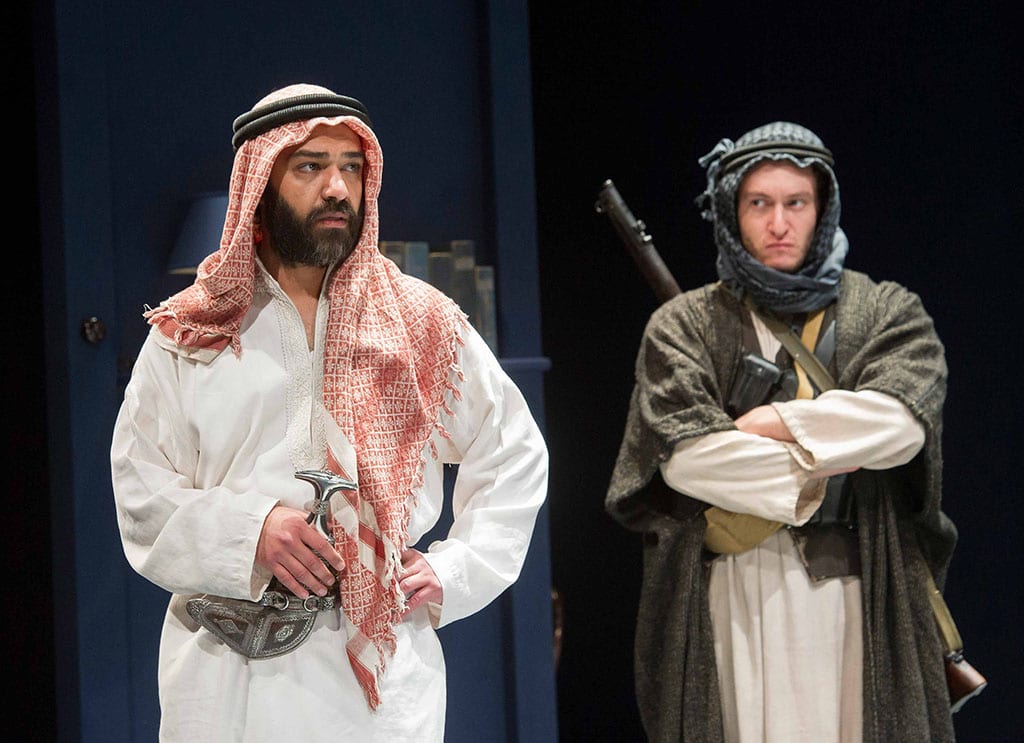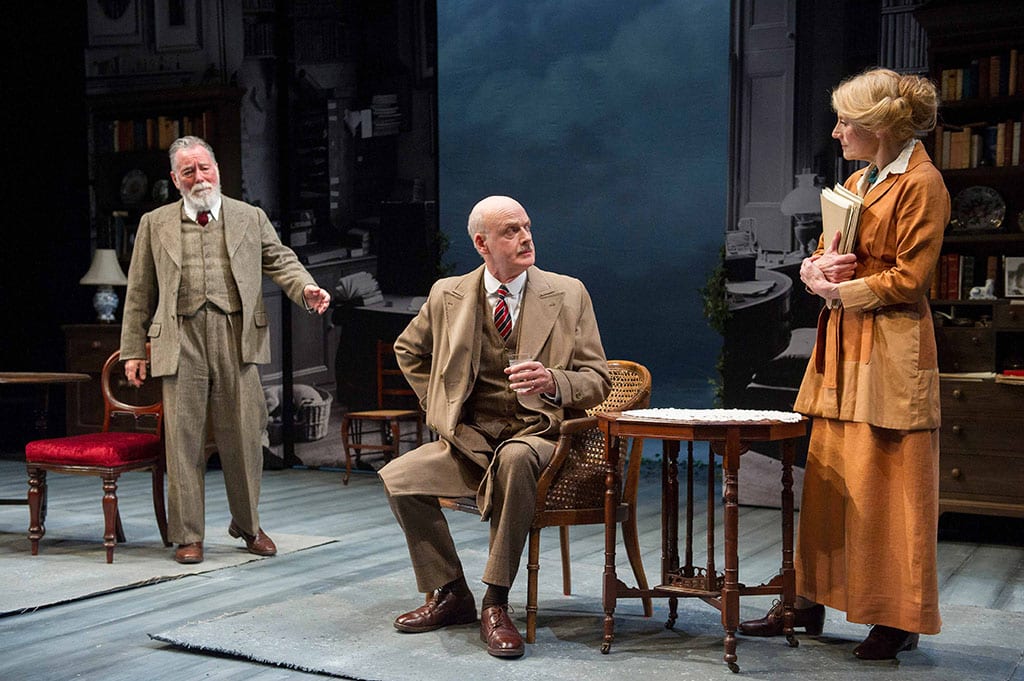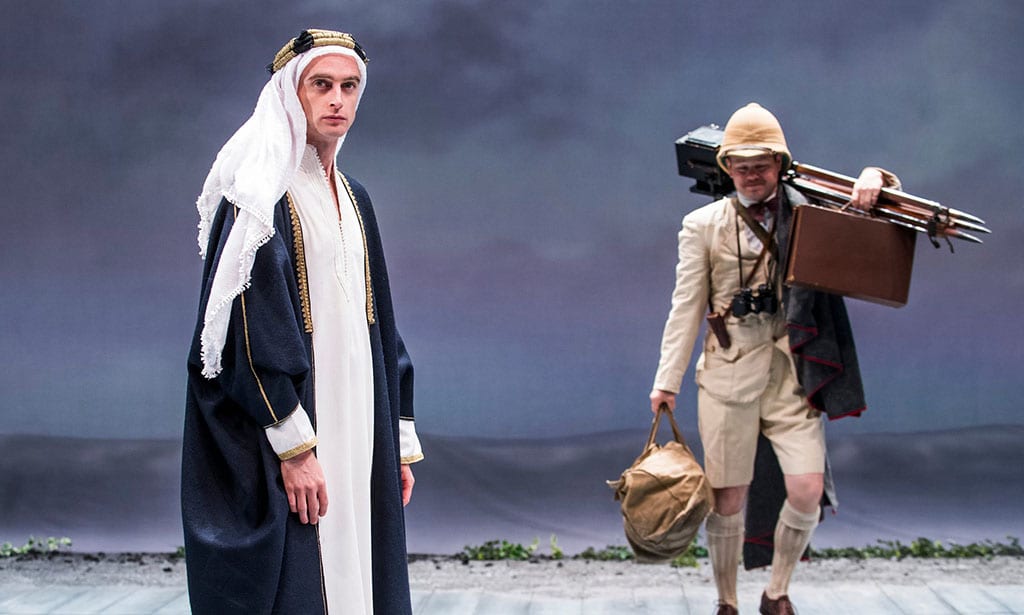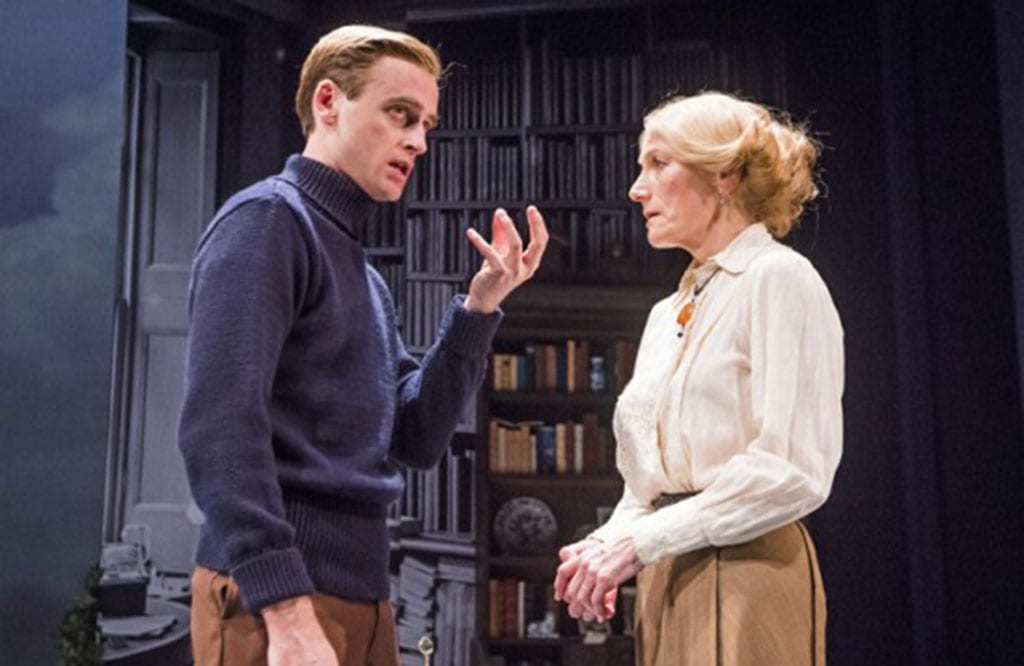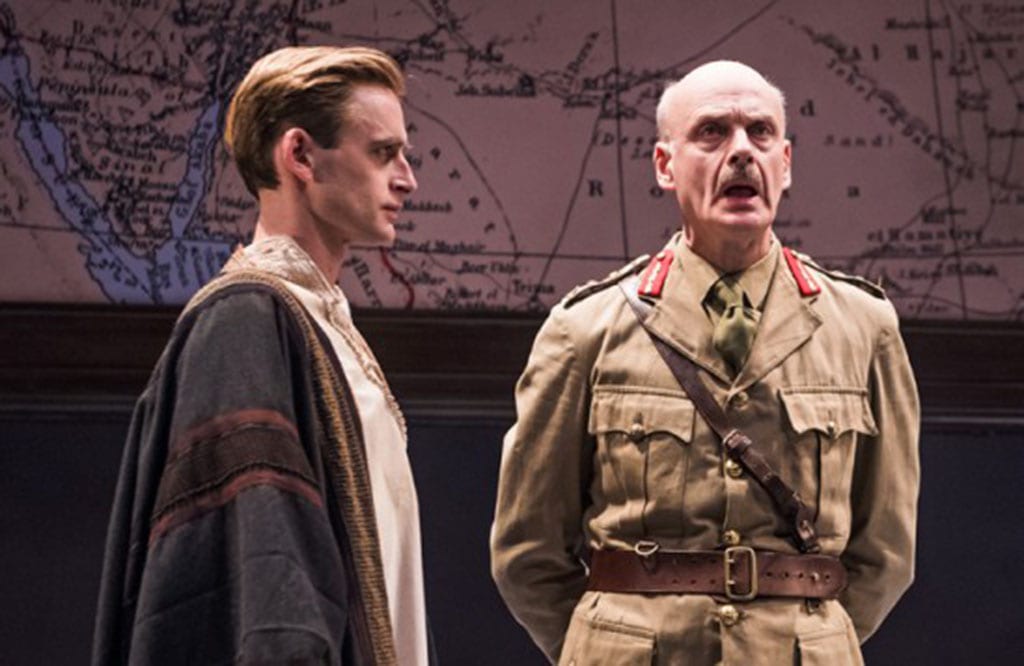As the centenary of the Arab Revolt (1916-1918), it seems appropriate for writer Howard Brenton to bring the courageous tale of Capt. Thomas Edward Lawrence and one of the most dramatic episodes of the 20th century to the stage. For those of you familiar with the epic four-hour biopic, David Lean’s film Lawrence of Arabia (1962), any expectations of heroic exploits and rebellion are to be inadequately met with an exposition-heavy account of the Lawrence After Arabia.
This play goes beyond the frontline and desert skies to tackle the man behind all the stardom, with much of the action taking place in the Hertfordshire home of quince-jelly-and-carrot-cake obsessed Irish playwright George Bernard Shaw (Jeff Rawle) and his wife Charlotte Payne-Townshend (Geraldine James).
During the First World War, Lawrence, a military officer turned valiant guerrilla fighter, greatly sympathised with the Arabs. He spoke their language, adored their people, and ardently share their dreams of freedom.
Shame, betrayal and bad faith collide as Lawrence desperately grapples with anxiety following his involvement in the Arabian uprising against the Ottoman Empire. Lawrence convinced the Arabs to fight under British command with the promise of independence. However, his pledge was undertaken with the knowledge that the British Government had already sealed a deal with the French in the Sykes-Picot agreement. The Middle-East was to be carved up and served among the West, a regional feast to blame for the horrors of terrorism we know all too well today.
The play struggles to take off and seems to tread a little too safely to keep you engaged. Brenton has clearly done his research and his personal attachment to the characters is clear. In an interview with the Hampstead Theatre, Brenton professes an interest in the Captain since childhood. He recalls a picture of Lawrence, hung on a wall at his primary school in the 1950s.
Whilst no dramatic sparks catch fire in the first half, the stage becomes ablaze for a few moments in the second. The climactic confrontation between Lawrence and Charlotte somewhat stops the play from what can only be described as dragging its feet. Laskey succeeds in merging the perfect amount of boyish gung-ho and derring-do with sensitivity and desperation, whilst Geraldine remains elegantly bold throughout, despite her restrained sexuality and jaded marriage. Witty remarks are delivered effortlessly by William Chubb as Field Marshal Edmund Allenby too, torn between affection and hatred for Lawrence. Yet even their often heartfelt performances aren’t enough to entirely redeem John Dove’s slow direction.
Aside from that, the setting is stylistically laced in rich 1920s decor and is a visual, antique delight. The stage parts like the red sea as we step into Lawrence’s mind and play out his memories of Prince Feisal and gifts of traditional silken Bedouin robes.
Overall, a topical production for those more familiar with T.E. Lawrence and the Revolt, but generally uninspiring.

